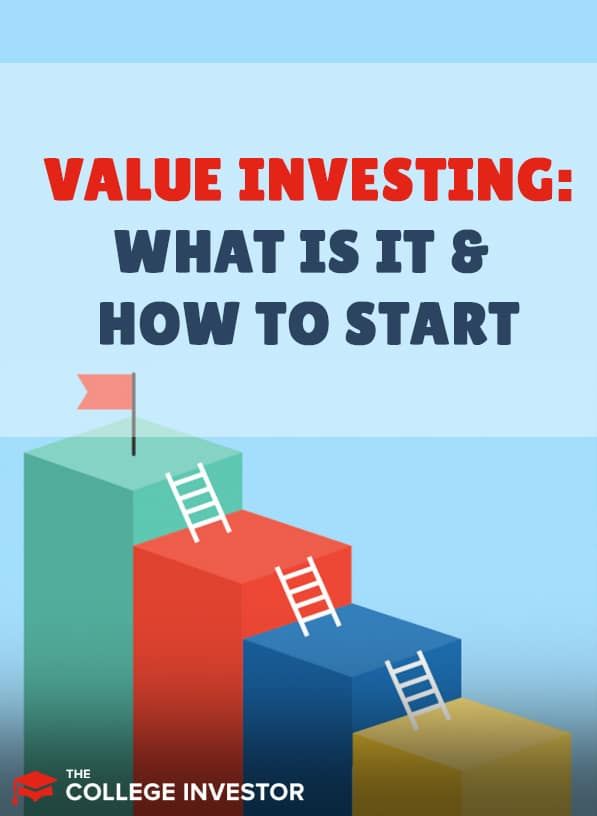
A bargain shopper that is always hunting for a deal on quality items can easily identify with the principles of value investing.
A value investor evaluates stocks based on their evaluation of a company’s fundamental worth. After a careful analysis, value investors buy stocks they believe are currently underpriced by the market.
The value investing strategy has worked for many investors throughout the decades, including celebrity investors like Warren Buffett. Could it be the right fit for your investment portfolio? We'll take a closer look to help you decide.
What Is Value Investing?
Value investing is a type of investment strategy in which investors act like bargain hunters looking for a deal. Value investors actively look for companies that are undervalued by the stock market.
When an investor finds a company they feel is undervalued by the market, they make their move to invest. But, to get to that point, the investor must be confident that the company will provide returns that outperform their current market valuation over the long-term.
Finding The Intrinsic Value Of A Stock
Value investing may sound like a great strategy. After all, who wouldn’t want to buy undervalued companies for substantial investment returns?
But knowing what to look for in an undervalued stock is an important piece of the puzzle. As a value investor, you aren’t looking at the media when making your valuation decision. Instead you're drilling down into the financials of a company to determine its intrinsic value.
Fundamental analysis of the company’s finances can illuminate the intrinsic value of a stock to investors that are willing to dig into the information. Although this will require some effort, it's a key component of successful value investing.
How To Get Started With Value Investing
Value investing can feel like bargain hunting in the stock market. If you can determine the true value of a company, you’ll know whether or not the current market price is accurate. Essentially, this presents the opportunity to buy stocks on sale.
But finding a good deal will require time and energy. If you’ve decided that value investing should have a place in your investment portfolio, here’s how to get started.
Do Your Research
First and foremost, you’ll need to get comfortable researching individual companies. You’ll need to look at several factors surrounding the company, including:
When conducting your fundamental analysis of a company’s value, don’t forget to include a margin of safety in your estimated value. You can create a margin of safety that fits within your risk tolerance.
Of course, it will take time to learn the ropes and effectively conduct a fundamental analysis of various companies. But over time, you’ll become more comfortable with the research.
Practice Patience

Value investing requires a patient approach to achieving your investment goals. Although value investors can be successful over the long-term, you may not find useful stocks immediately. It may take some time to learn the ins and outs of the market before you find your first great deal.
Don’t despair if you don’t find the perfect stock immediately! Instead, continue to look for an undervalued stock that will fit within your investment portfolio.
Warren Buffett is probably the most well-known value investor, and one of his top quotes is:
"Be Fearful When Others Are Greedy and Greedy When Others Are Fearful"
Aim For Diversification And Steady Returns
Any investment portfolio should not place too much emphasis on any particular company. Instead, you should spread out your investment portfolio among a diverse assortment of assets. With that, you should look for undervalued companies across a wide range of sectors and industries.
Beyond a diverse portfolio, you should seek out companies with reliable returns. For example, investing in stocks that have a long history of paying dividends (or consistently raising them) could be a smart move.
Don’t chase speculative, high-risk stocks, even if they may offer out-sized short-term returns. Instead, find stocks that could provide capital appreciation and/or dividends for years to come.
Ignore The Herd
Often, stocks become overvalued or undervalued during mass-market movements by stockholders. When investors overreact to the market’s climate, it can lead to an unbalanced marketplace with many companies being overvalued or undervalued.
To be a successful value investor, you’ll need to ignore the moves of the masses. Although many investors fall into a herd mentality when stock prices rise or fall, a value investor relies on their own fundamental analysis when deciding to buy or sell.
If you have a consistent method to determine the intrinsic value of a company, you can decide whether or not you want to buy without consulting the whims of the masses.
Avoid Value Traps
Many companies are great values. Many are value traps – companies that are cheap, and will be cheap for some time. So how can you delineate between companies that are poised to move and companies destined to be cheap for a long time to come?
Catalysts – let’s talk about a few.
Share Repurchases – Share repurchases happen when companies buy back their own stock to reduce share count. Repurchases help by reducing the amount of common stock floating on the market, and also by increasing headline earnings per share. The best repurchase programs are those that are enacted by companies with a higher than average institutional ownership of the float.
How to find opportunity: check out a site like MorningStar, which lists the ownership by various funds and institutional investors as a percentage of all shares outstanding. The more institutions and mutual fund investors (especially index funds), the bigger the pop!
Dividends – In low rate environments like that which we have right now, a dividend is a great way to get on the radar of income investors. Also, some mutual funds do not hold stocks unless they pay a dividend, meaning that a new dividend could attract potentially billions of dollars in new investment interest.
How to find opportunity: look into a company’s conference calls – dividends are a hot topic, one which is discussed frequently between equity analysts and corporate management. A new dividend is more beneficial to existing shareholders than an increasing dividend.
Secondly, check out the company’s new dividend relative to peers. I like to use Google’s stock screener to sort by industry and then dividend yield to see how a new or future dividend will place the company within its industry.
Debt Reduction – I love companies that have gone through trouble, but are finding their way out. In such cases, I especially like companies that simply had too much debt relative to their future earnings. As companies pay down debt, or silently acquire their own bonds on the open market, the company earns what is essentially a low-risk return on its cash.
How to find opportunity: look for companies that are on the line between junk and investment-grade ratings that have either short-term debt issues, or callable debt securities. Such companies can quickly reduce the cost of debt service, improving profits and making them more competitive in their space. You can get an overview of a company’s upcoming debt maturities here.
Businesses are valued based on their value to a private owner – someone who controls all the cash flows coming from a business. When the business uses cash flows in a way that appeases shareholders the value of the company increases on a per-share basis. No one wants to buy into a company that is a poor steward of owner earnings.
Final Thoughts
Value investing can be a useful way to maximize the profits of your investment portfolio. However, it will require a substantial amount of time and effort to execute this strategy effectively.
You might also make sure you understand growth investing and how it compares.
If you want to try value investing in individual stocks, you’ll likely want to test it out on a dedicated portion of your investment portfolio. That way you can still keep another portion of your portfolio in baskets of securities such as index funds and ETFs.
Whether you want to invest in individual stocks or diversified funds, you'll first need to open an account with a stock broker. To compare your options, check out our favorite brokers for investing.

Robert Farrington is America’s Millennial Money Expert® and America’s Student Loan Debt Expert™, and the founder of The College Investor, a personal finance site dedicated to helping millennials escape student loan debt to start investing and building wealth for the future. You can learn more about him on the About Page or on his personal site RobertFarrington.com.
He regularly writes about investing, student loan debt, and general personal finance topics geared toward anyone wanting to earn more, get out of debt, and start building wealth for the future.
He has been quoted in major publications, including the New York Times, Wall Street Journal, Washington Post, ABC, NBC, Today, and more. He is also a regular contributor to Forbes.
Editor: Clint Proctor Reviewed by: Chris Muller
